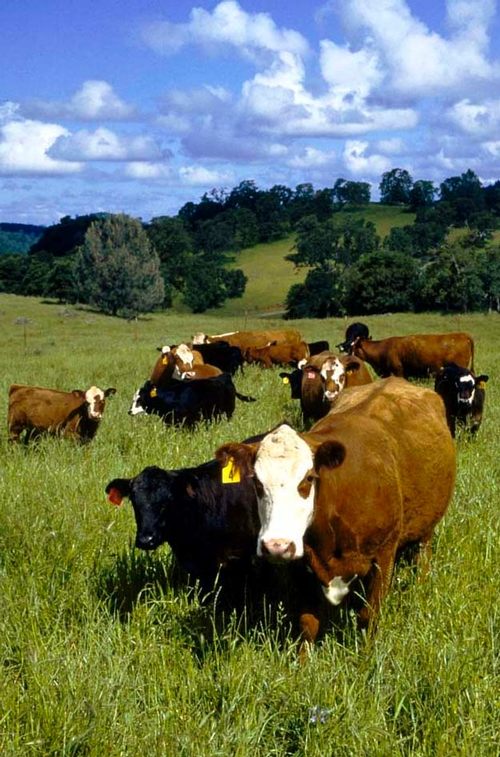Loss of Williamson Act would threaten wildlife habitat
California’s premier farmland protection tool – the Williamson Act – is on the state’s budget-cutting chopping block and with it critical habitat needed for conservation.
A UC Davis study completed by a team of graduate students working with rangeland watershed specialist Ken Tate and other faculty found that 43 percent of the 10 million acres of “non-prime” land in the program, used primarily for cattle grazing, is also critical for statewide conservation goals. Conservation status was determined by the California Rangeland Conservation Coalition, a voluntary partnership between ranchers, environmentalists, government agencies, and others working to preserve and enhance the state’s rangeland areas.
For nearly 50 years the Williamson Act has provided private landowners with tax breaks in exchange for an agreement to keep land in agricultural or open space use for a specified period of time. The state compensated counties for the reduced property tax revenue but cut these subsidies in 2008 and again in 2009. Legislation passed in October (Assembly Bill 2530) allows counties to voluntarily implement modified contracts for reduced terms but does not ensure continuation of the Williamson Act beyond 2015.
To understand how loss of the Williamson Act would affect ranchers and the environment, the researchers surveyed 700 members of the California Cattlemen’s Association in 2010. Their findings confirmed what many in the industry already know: ranching is a low-profit industry. Seventy percent of surveyed ranchers made less than $10,000 in 2009 and less than half reported making a profit. Seventy-two percent of the ranchers surveyed consider the Williamson Act to be “extremely important” to their operations.
Survey results also show that loss of Williamson Act funding at the state level would put critical habitat at risk for development. Forty-two percent of the surveyed ranchers said they would sell some or all of their rangeland without the tax relief. Fifty-six percent of the ranchers predict their sold land would be developed for non-agricultural uses.
“California’s rangelands provide clean drinking water, wildlife habitat, open space, and sequester carbon among many other critical ecosystem services,” Tate says. “We need tools such as the Williamson Act to conserve this important landscape.”
Study authors include doctoral students Sarah Myhre, Iara Lacher, Will Wetzel, Dale Manning, and Dan Swezey. They were participating in a collaborative project for an “IGERT” traineeship focused on rapid environmental change. The program is funded by the National Science Foundation. A concise policy brief on the survey was published in October 2010 and includes an illustrated map of the areas that could be affected by the demise of the Williamson Act. The policy brief and additional information about the program is available online at http://reach.ucdavis.edu/programs/williamsonact.html.




Posted by Pat Asakawa on March 7, 2011 at 11:07 AM